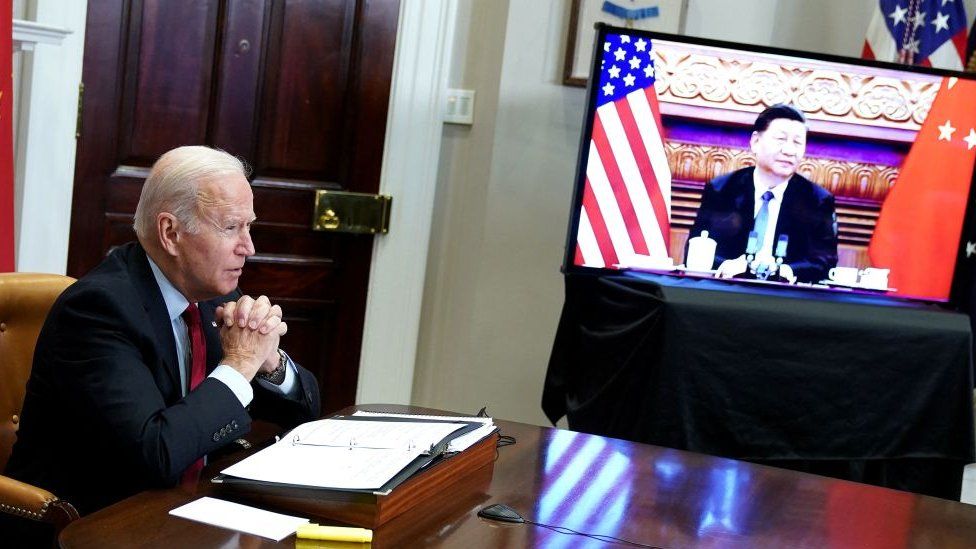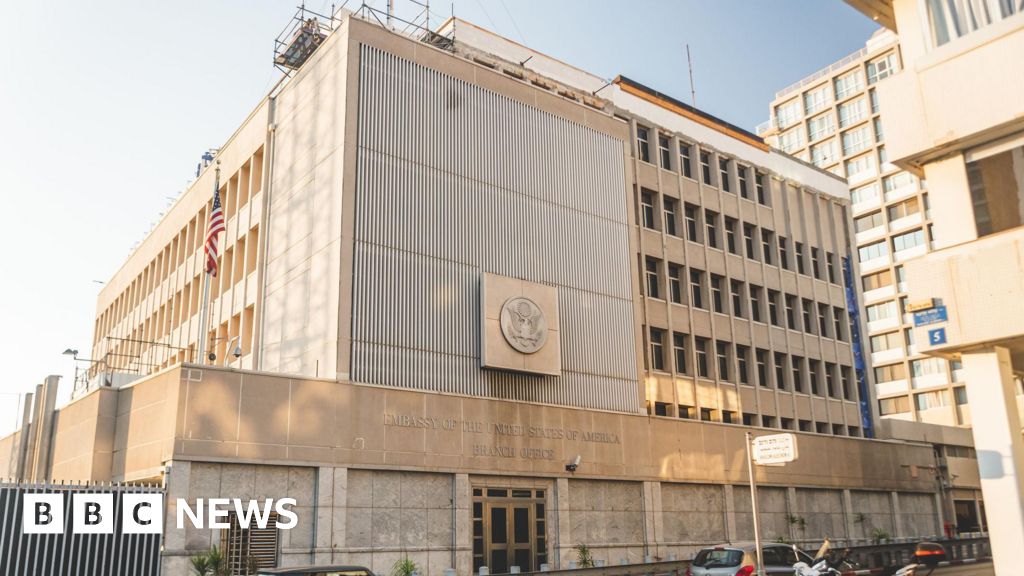ARTICLE AD BOX
 Image source, Getty Images
Image source, Getty Images
The pair have only met in person once in three years - although they held a virtual summit in 2021
US President Joe Biden and China's President Xi Jinping are set to hold a high-stakes meeting in California, and there is no shortage of potentially tricky topics to discuss.
Trade, war in the Middle East and Taiwan are among the issues likely to be on the agenda.
So what would success look like for each leader? We asked our correspondents to give their assessment.
What Xi wants
The last twelve months have been very bad for Xi Jinping politically. If he can emerge from his summit with Joe Biden giving the appearance that he is steering US-China relations into calmer waters, he will be pretty happy with that.
China's leader is clearly all-powerful, but even he feels pressure, and - after a string of perceived setbacks - he needs a solid, public win.
There will be a lot of interest in what subjects the two men will discuss, especially given how many potentially sensitive flashpoints exist between Beijing and Washington. Freedom of navigation in the South China Sea, US support for the government in Taiwan and trade blocks on certain new technologies could all be on the agenda.
But for Xi Jinping, what is paramount is what happens at home. It is the images of him on Chinese media showing a strong figure dealing with the Americans that will be of crucial importance.
This year, two of his most high-profile appointees - the foreign minister and the defence minister - were removed without explanation. His judgement is seen as having been tarnished because he selected these men and yet they had to be taken down.
Then there was the purge of Rocket Force generals, leading to an overhaul of who is in charge of the country's nuclear missiles. Rumours have been swirling around about why those at the top of this elite nuclear unit were replaced but, whatever the reason, this has further fuelled the impression that all is not well in the upper echelons of the Communist Party.
All of this came off the back of Mr Xi suddenly abandoning his hugely unpopular 'Zero Covid' policy at the end of last year, after protests started breaking out across the country calling for an end to the widespread restrictions on people's movements. It led to an unknown death toll as the virus exploded.
Added to that, the once seemingly unstoppable machine of the Chinese economy is spluttering and stalling with record-high youth unemployment, tech sector layoffs and a housing crisis.
Some good news about China's relations with the other world superpower would not go astray. Even better if it leads to more trade.
What Biden wants
No one is expecting a major breakthrough in this meeting.
A major improvement in the relationship between these two nations is not realistic. The purpose is to try and make sure that relations do not get worse.
There will be no dramatic headlines or agreements signed, very few concrete outcomes. But it is still important.
To understand the significance, you have to imagine what could happen if this meeting did not take place and relations between China and the US continued to deteriorate. All the different ways in which the two countries might clash with dangerous consequences.
President Biden is expected to say that he wants China to use its increasing influence with Iran to make clear that it should not take any provocative actions in the Middle East that could provoke a wider regional war.
On Ukraine, he will warn against any move by China to provide Russia with deadly military equipment.
One important thing America wants to achieve is re-establishing military communications. Allowing their generals to talk to each other could be crucial in making sure that misunderstandings do not become dangerous flashpoints.
After the US shot down a Chinese spy balloon in February, officials in Beijing would not answer a call from the US defence secretary.
Watch: US says a Chinese aircraft caused danger of collision
The biggest point of contention, however, is Taiwan.
China broke off military communications after the visit to the self-governing island by then House speaker Nancy Pelosi last year. More recently, a Pentagon report said that China is significantly building up its stocks of nuclear weapons and taking increasingly dangerous actions to deter US forces in the region.
Once again, avoiding a further deterioration in relations over Taiwan could be considered a victory of sorts.
There is also the matter of economics and trade to discuss. This includes America's ban on the export of certain sophisticated semi-conductor chips to China.
Additionally, on the agenda will be American complaints about Chinese-made fentanyl that US authorities say is flooding the country, and warnings against China attempting to interfere in next year's US presidential election.
Mr Biden believes that his decades-long track record in foreign affairs and personal relationships with leaders around the world make him uniquely placed to defuse global tensions. This meeting will be a significant test of that.

 1 year ago
35
1 year ago
35








 English (US) ·
English (US) ·